My love - hate relationship with bodabodas
This means of transport is convenient for Kampala’s working and non-working class citizens.
(All pictures by Nadia Kusiima)
Three. That is the number of times I have been on a boda-boda.
As a 21st-century teenager getting a glimpse of the real world through my job shadowing experience, I can safely say that my persona has been sufficiently challenged.
I was raised within the picket fence confines of international schools and cosy middle-class life. Little did I know that it would be my sole defeat.
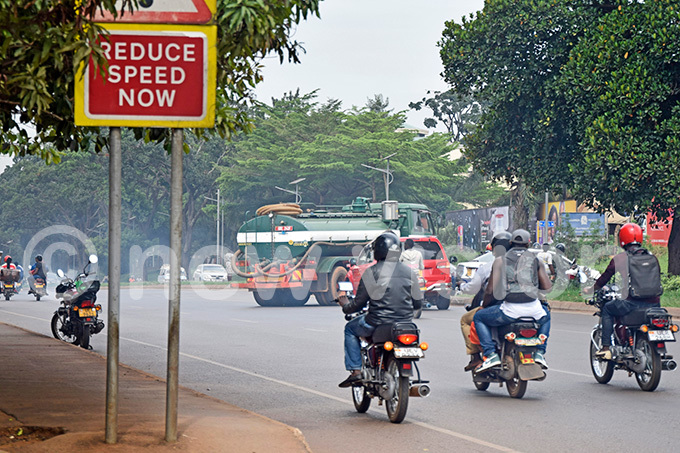
Picture by Nadia Kusiima
It is hard enough to tell people that you don't speak Luganda but to dare utter the words, "I don't take bodabodas." This has led to some painful laughter and strange looks. "Really!" This is an exclamation I get from the people I tell about my experience.
In an effort to get a better sense of what drives the people of Uganda mad and the very thing some of them depend on, I took to the streets of Kampala to capture bodabodas unabashedly in their element.
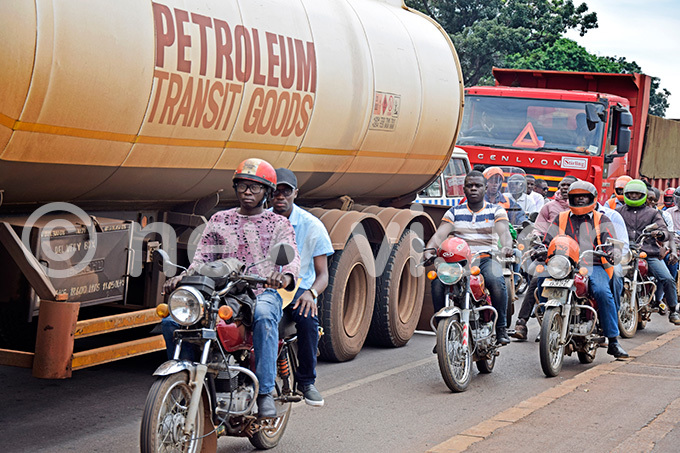
Seemingly so, walking up Jinja road with a camera around my neck warranted a few looks. I did find that the commonality of men lousing on the grass with their bikes tipped over to rest, equal to the pours of men zooming across the yard midmorning.
They were everything I expected; loud, rowdy, reckless and unforgiving. For a moment, I wondered why it is so shocking that I wouldn't put my life in a possible death trap. Oh! But my thinking.
This means of transport is convenient for Kampala's working and non-working class citizens, making sense of the fact that the convenience of speedy transport is in such high demand.
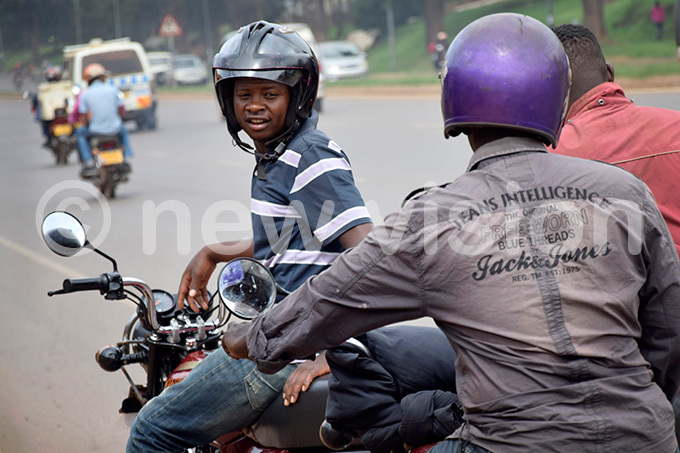
It certainly beats the muggy of air of overcrowded taxis. Other alternatives are just barely out of reach of the average earnings, we can't all fly bombardier.
The constant love-hate relationship the people have doesn't change the fact that bodabodas aren't going anywhere, which explains their increase in numbers.
This wasn't the full picture though. I needed to see what it was like through the eyes of the men behind handgrips.
I had an interaction with, Jackson Bukenya, a bodaboda rider, who allowed me to ask him some questions.
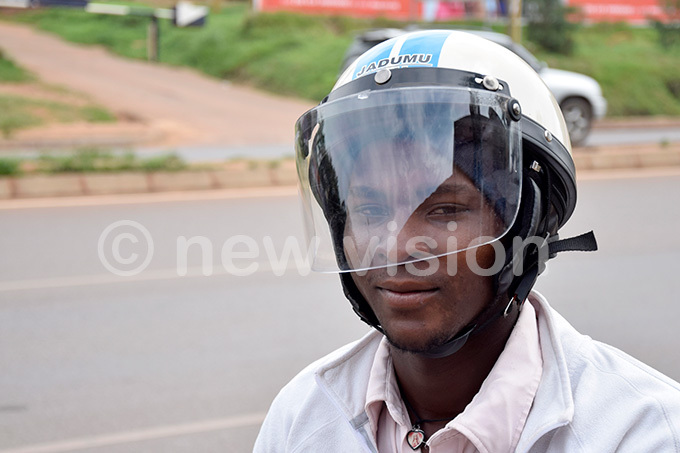
Jackson Bukenya, a boda-boda rider (Picture by Nadia Kusiima)
Taken from translation (because of language barriers on my part), Bukenya tells me that he loves and is very proud of his job.
Based at Pioneer Mall stage, his typical day starts at 7:00 am. Bukenya's is a 12 hour day kind of job, where he serves about 20-30 customers.
Here is where it dawned on me that this his livelihood is dependent on the money he makes as a bodaboda rider, which makes him as essential to the functioning of our society just as much as lawmakers.
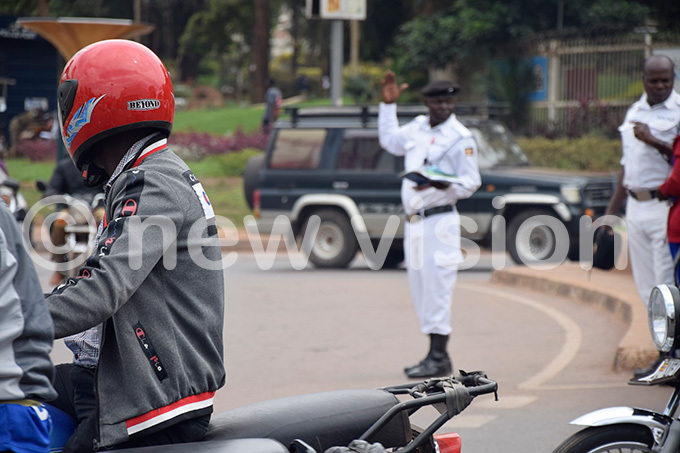
Bukenya convinced me that he obeys all the rules especially the traffic lights, but still feels pestered by the traffic police, whom he says stop him every time he carries two passengers.
Just as some dislike politicians, bodaboda riders deal with the same feat. Customers who don't want to pay are also something he faces, but these are their jobs and they have to make a living.
Bukenya and men like him have made well for themselves, proving a fruitful and respectable profession.
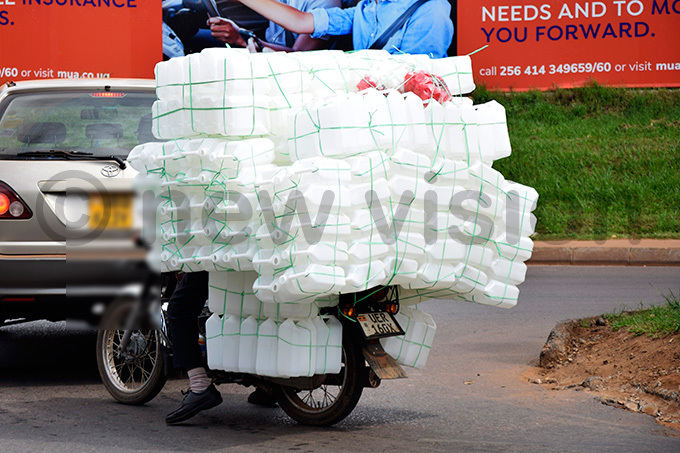
After stepping outside of my gate, with the dust in my eyes I have a newfound appreciation for bodaboda riders.
Not to downplay their need to control and respect traffic regulations and to play their role in ensuring road safety. It also wouldn't hurt to have more women accepted into the field.
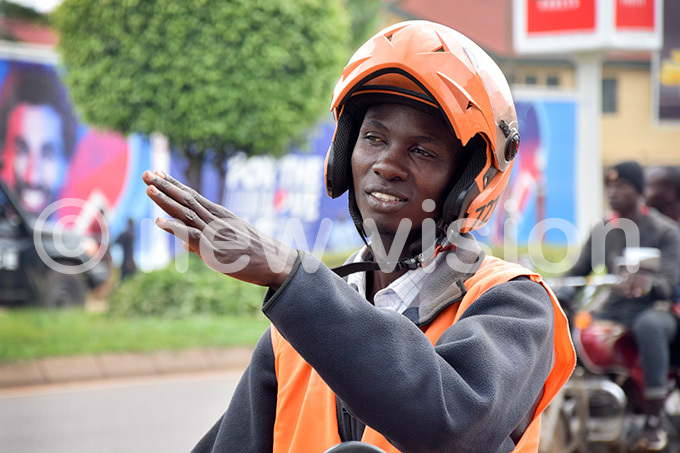
I think the next time I'm invited for a boda ride downtown, I just might consider it.
Nadia Kusiima is a student at UWCSA Waterford Kamhlaba.